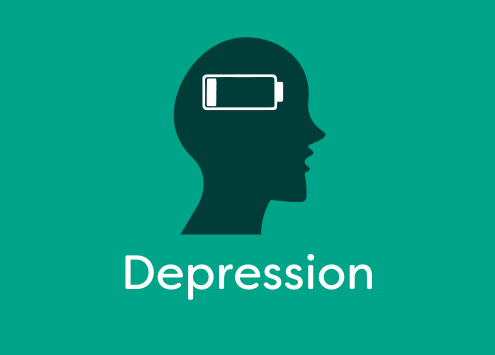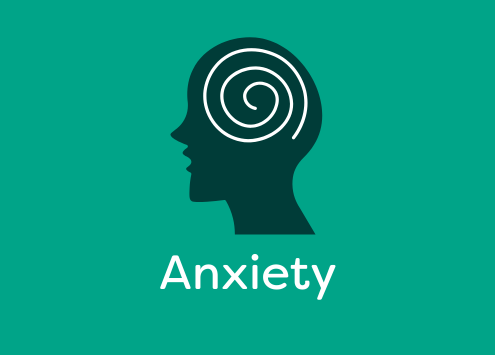 https://steponecharity.co.uk/wp-content/uploads/2024/01/237.png
355
700
Lauren
https://steponecharity.co.uk/wp-content/uploads/2024/02/step-one-wellbeing.svg
Lauren2024-01-24 12:46:092024-11-13 15:24:32Depression
https://steponecharity.co.uk/wp-content/uploads/2024/01/237.png
355
700
Lauren
https://steponecharity.co.uk/wp-content/uploads/2024/02/step-one-wellbeing.svg
Lauren2024-01-24 12:46:092024-11-13 15:24:32DepressionWhat is depression?
Depression is when you feel persistently sad and unhappy for a long period of time and affects your everyday life. Depression can sometimes be viewed as trivial and not a real health condition however this is not true. Depression is a real illness with real symptoms and is a very common mental health condition.
The severity of depression is usually categorised into the following:
- Mild depression – has some impact on your daily life
- Moderate depression – has a significant impact on your daily life
- Severe depression – makes it almost impossible to get through daily life
There are several types of depression and the condition itself can be a resulting symptom of a mental illness such as bipolar disorder.
- Postnatal depression – Women can develop depression a short time after giving birth; this is known as postnatal depression and it is treated in a similar way to other types of depression – with talking therapies and antidepressant medicines.
- Seasonal affective disorder – A type of depression with a seasonal pattern, usually related to winter. Coincidentally, this condition is also known as ‘winter depression’.
- Bipolar disorder – With bipolar disorder there are spells of both depression and excessively high mood (mania); the depressive symptoms are similar to that of clinical depression.
Signs and symptoms of depression
- Avoiding eye contact with family and friends
- Avoiding social events and neglecting hobbies
- Not doing as well at work
- Continuous low mood, feeling upset and tearful
- Feeling hopeless and low self-esteem
- Lack of motivation or interest in things
- Feeling irritable and intolerant of others
- Thoughts of self-harm or suicide
- Changes in appetite or weight loss/gain
- Lack of energy, muscle aches and pains
- Disturbed sleep patterns and low sex drive
Some causes of depression
- Stressful events – Most people take time to come to terms with stressful events, such as bereavement or a relationship breakdown. When these stressful events occur, your risk of becoming depressed is increased if you stop seeing your friends and family and try to deal with your problems on your own.
- Personality – You may be more vulnerable to depression if you have certain personality traits, such as low self-esteem and being overly self-critical. This may be because of the genes you have inherited from your parents, your early life experiences or both.
- Family history – If someone in your family has had depression in the past, such as a parent or sibling, it’s more likely you will develop it.
- Giving birth – Some women are particularly vulnerable to depression after pregnancy. The hormonal and physical changes, as well as added responsibility of a new life, can lead to post-natal depression.
- Loneliness – Becoming cut off from your family and friends can increase your risk of depression
- Alcohol and drugs – When life is getting them down, some people try to cope by drinking too much alcohol or taking drugs. This can result in a spiral of depression.
- Illness – You may have a higher risk of depression if you have a longstanding or life-threatening illness, such as coronary heart disease or cancer.
Helping someone with depression
- Provide opportunity for the person to talk. If the person does not initiate a conversation with you, you should say something to them.
- Choose an appropriate time where you will both feel comfortable, without any distractions.
- Listen to them carefully, remain calm and provide reassurance.
- Accept what they say without judgement and show your understanding.
- If they feel uncomfortable, you can help them access information and resources.
- Assist in signpost to professional support such as their GP, if this is appropriate.
Useful contacts
CALM – CALM is the Campaign Against Living Miserably, for men aged 15-35
Phone – 0800 58 58 58 (Daily, 5pm to midnight)
Website – www.thecalmzone.net
PAPYRUS – Young suicide prevention society
Phone – HOPElineUK 0800 068 4141 (Mon to Fri, 10am to 5pm & 7 to 10pm. Weekends 2 to 5pm)
Website – www.papyrus-uk.org
Samaritans – confidential support for people experiencing feelings of distress or despair
Phone – 116 123 (24-hour helpline)
Website – www.samaritans.org.uk
Useful contacts
Anxiety UK
Charity providing support if you’ve been diagnosed with an anxiety condition
Phone: 03444 775 774 (Mon to Fri, 9:30am to 5:30pm)
Website: www.anxietyuk.org.uk
Samaritans
Confidential support for people experiencing feelings of distress or despair
Phone – 116 123 (24-hour helpline)
Website – www.samaritans.org.uk
Men’s Health Forum
24/7 stress support for men by text, chat and email
Website: www.menshealthforum.org.uk
Mental Health Foundation
Provides information and support for anyone with mental health problems or learning disabilities
Website: www.mentalhealthfoundation.org.uk
Mind
Promotes the views and needs of people with mental health problems
Phone – 0300 123 3393 (Mon to Fri, 9am to 6pm)
Website – www.mind.org.uk
No Panic
Voluntary charity offering support for sufferers of panic attacks and OCD
Phone – 0844 967 4848 (Daily, 10am to 10pm)
Website – www.nopanic.org.uk
Rethink Mental Illness
Support for people living with mental illness
Phone – 0300 5000 927 (Mon to Fri, 9:30am to 4pm)
Website – www.rethink.org



